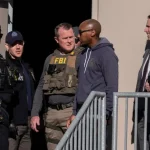

Multiple mass shootings in recent weeks have led to calls for Congress to act on gun reforms, with both chambers taking different approaches on how to address the problem legislatively.
Following the May 14 shooting at a Buffalo, New York, supermarket that left 10 dead, the Uvalde, Texas, school massacre on May 24 that resulted in the death of 19 children and two teachers, and the five killed in a shooting at a Tulsa, Oklahoma, medical facility on June 1, Democrats in the lower chamber are pushing for substantial policy changes that are likely to be met with pushback in the Senate.
House Judiciary Committee Chairman Jerry Nadler (D-NY) announced a recess-week markup on eight gun-related bills, dubbed collectively by Democrats as the ”Protecting Our Kids Act,” that include language to up the age limit to buy certain semi-automatic rifles to 21 and ban the “import, sale, manufacture, and possession of large-capacity magazines.”
The bills also include language that looks to increase regulations on the storage of firearms and codify regulations on bump stocks.
Speaker Nancy Pelosi (D-CA) asserted that the House would take up legislation to ban assault weapons during a gun control rally in San Francisco on Wednesday.
“We will be having a hearing and marking up the assault weapon ban. … And then, as we get through those, we will be having a hearing and marking up the assault weapon ban following all of that. So, we just are trying to hit it in every possible way,” she said. “Of course, we want the Senate to pass the background check legislation, which will save more lives than any of the initiatives we have.”
Conservatives have signaled opposition, arguing that the House’s measures would restrict law-abiding citizens’ Second Amendment rights.
“Absolutely not,” the GOP Twitter account for the House Judiciary Committee tweeted in response to Pelosi’s calls to pass an assault weapons ban. Shortly after the Texas shooting, Sen. Ted Cruz (R-TX) told CNN, “Inevitably, when there’s a murderer of this kind, you see politicians try to politicize it, you see Democrats and a lot of folks in the media whose immediate solution is to try to restrict the constitutional rights of law-abiding citizens.”
While some conservative hard-liners have expressed reluctance to change gun laws, a bipartisan group of senators is working to reach a consensus on red flag laws.
Last week, Sen. John Cornyn (R-TX) said he felt the talks were productive, and they are moving closer to finding common ground on a framework that could be palatable to members in both parties and both chambers.
“Sens. Murphy, Sinema, Tillis, and I had a very constructive conversation about the best response to the horrific events in Uvalde last week. We’ve asked our staff to continue to work together to address some of the details that we hope to be able to discuss at some point soon,” he said.
While refraining from discussing details with the press, Sens. Lindsey Graham (R-SC) and Richard Blumenthal (D-CT) have also expressed optimism about their chances of coming together on a red flag bill.
“Lindsey Graham and I have made tremendous progress over the last 3 1/2 years. We actually have written a statute that we hope will have broad bipartisan consensus because it provides incentives for states to do what 19 of them have already done. Red flag laws save lives,” Blumenthal told NPR.
“The judges, law enforcement, everyone involved tells us so. I’m really hoping that we can get to 60 votes and that our bipartisan group of five Republicans and five Democrats will propose some form of a red flag statute.”






